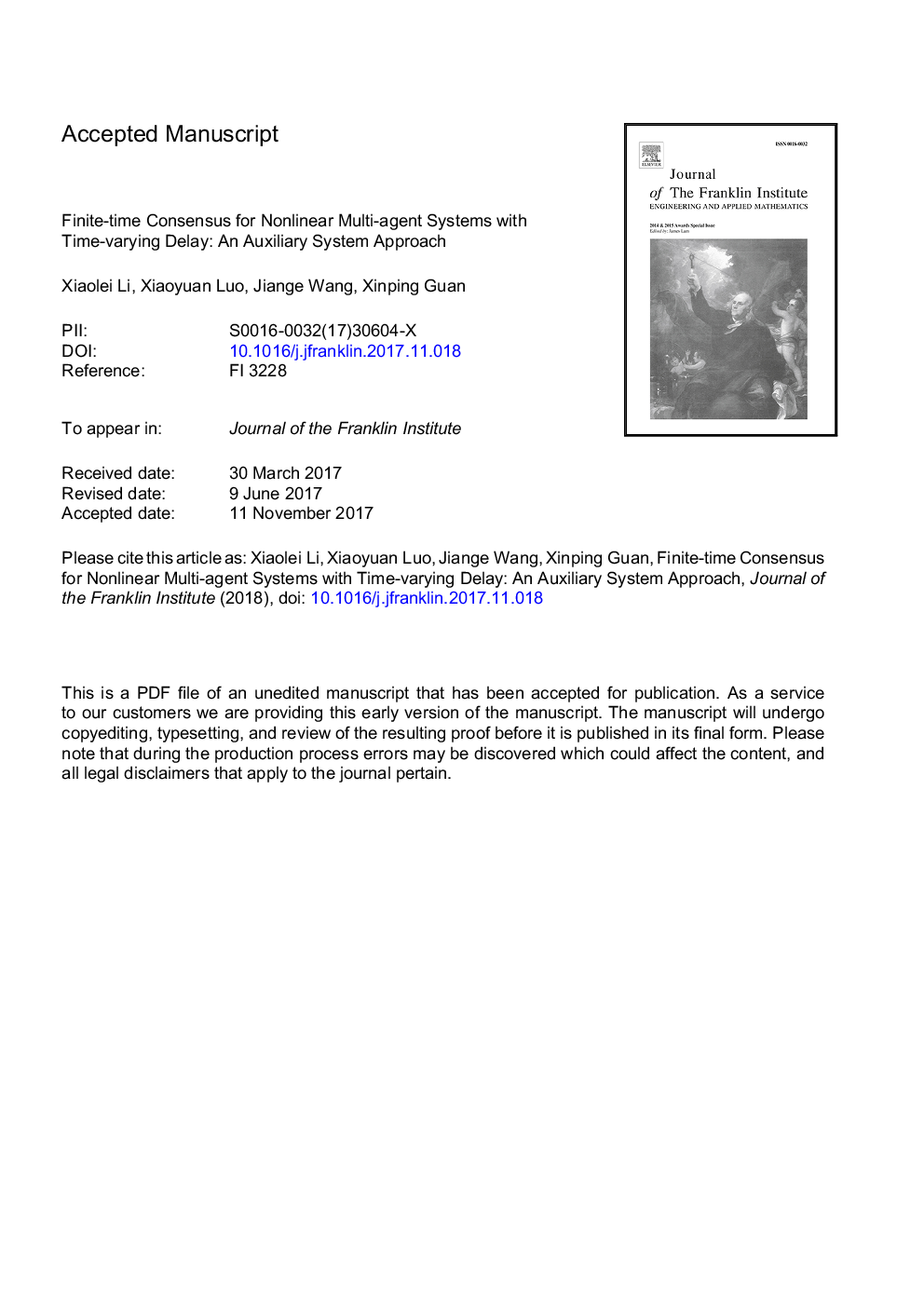ترجمه فارسی عنوان مقاله
اجماع محدود زمانی برای سیستم های چند عامل غیر خطی با تاخیر زمانی متغیر: یک روش سیستم کمکی
عنوان انگلیسی
Finite-time consensus for nonlinear multi-agent systems with time-varying delay: An auxiliary system approach
| کد مقاله | سال انتشار | تعداد صفحات مقاله انگلیسی |
|---|---|---|
| 161981 | 2018 | 31 صفحه PDF |
منبع

Publisher : Elsevier - Science Direct (الزویر - ساینس دایرکت)
Journal : Journal of the Franklin Institute, Volume 355, Issue 5, March 2018, Pages 2703-2719
ترجمه چکیده
این مقاله به بررسی مسئله اجتناب ناپذیر از سیستم های چند عامل غیر خطی با تداخل متغیر زمان نامتقارن و توپولوژی ارتباطی مرتبط پرداخته است. یک سیستم کمکی برای اولین بار برای مقابله با تاخیرهای ارتباطی متناوب یا متناوب زمان متفاوت طراحی شده است. بر اساس چارچوب ورودی / خروجی محدود زمان، یک طرح اجماع جدید مبتنی بر مبادله اطلاعات تاخیری محلی پیشنهاد شده است. علاوه بر این، با استفاده از ماتریس رگرسیون یکپارچه و روش بردار، عدم اطمینان سیستم را می توان با دقت برآورد کرد. سپس توافق سیستم های چند عامل را می توان در زمان محدود با انتخاب کنترل سود به سادگی به دست آورد. در نهایت، شبیه سازی عددی برای نشان دادن اثربخشی الگوریتم های کنترل پیشنهادی ارائه شده است.

